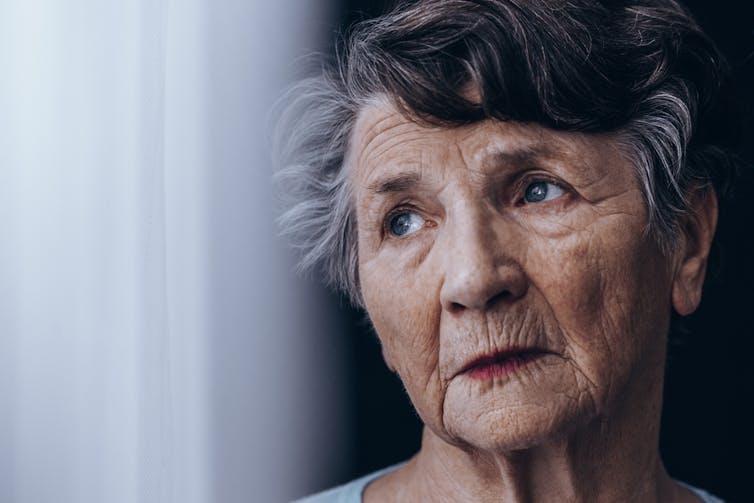Having a brain injury does not mean you'll get dementia
- Written by Travis Wearne, Postdoctoral Research Fellow, UNSW
Two recent studies recently drew a link between traumatic brain injuries and dementia. Understandably, media outlets were quick to report on these findings.
The Los Angeles Times ran the story:
Even a mild case of traumatic brain injury is linked to an increased risk of dementia
The New York Times reported:
Traumatic Brain Injuries Are Tied to Dementia
But if you have had a traumatic brain injury at some point during your life, what is the actual risk of dementia?
Read more: How injuries change our brain and how we can help it recover
What is a traumatic brain injury?
Traumatic brain injury refers to damage of the brain caused by an external force, such as from a traffic accident, fall or assault (such as a coward punch). This leads to bruising, bleeding, and tearing of brain tissue.
Traumatic brain injuries fall on a spectrum of severity, with the initial loss of consciousness and duration of confusion (known as post-traumatic amnesia) used to classify brain injuries as mild, moderate, or severe. Most traumatic brain injuries (approximately 80%) are mild.
Read more: Explainer: what is traumatic brain injury?
What is dementia?
Dementia is caused by a progressive build-up of proteins in the brain, which ultimately causes brain cells to die.
There are several types of dementia, including Alzheimer’s disease, dementia with Lewy bodies, vascular dementia, and frontotemporal dementia.
Each dementia type is caused by a different type of protein, and affects different parts of the brain, leading to diverse symptoms. It’s not known what causes this abnormal build-up of proteins in the brain.
Read more: What causes Alzheimer’s disease? What we know, don’t know and suspect
 Dementia is caused by a progressive build-up of proteins in the brain.
from www.shutterstock.com
Dementia is caused by a progressive build-up of proteins in the brain.
from www.shutterstock.com
What did the studies find?
Two recent studies have assessed whether traumatic brain injuries are related to dementia.
Study 1. A research group from the University of California examined the medical records of over 350,000 US veterans, half of whom had experienced a traumatic brain injury. They found those who had a mild traumatic brain injury were more than twice as likely to develop dementia. The risk was even greater (about 2.5 times) if they had lost consciousness as a result of the traumatic brain injury. People who had moderate or severe traumatic brain injuries were nearly four times as likely to develop dementia.
Study 2. Danish researchers examined the national records of nearly 2.8 million citizens who were over 50 years old between 1999 and 2013. They found 126,734 people had dementia (4.5%) and 132,093 had a history of traumatic brain injury (4.7%). They reported the risk of dementia was 24% higher for people who had a previous traumatic brain injury. These risks were even higher for males, people who had a more severe traumatic brain injury, and for people who had more than one traumatic brain injury in the past.
Both these studies identified cohorts of people and assessed how they changed over time. These studies also used data collected at the time of the traumatic brain injury, rather than relying on people’s memory of injuries in their past. They also used large samples and controlled for medical and psychiatric factors that could influence their results.
The potential for brain injury to lead to dementia is understandably alarming information. The relationship between severe traumatic brain injury and dementia has been known for some time. The risk of dementia following mild injuries is novel and is particularly concerning given the prevalence of sports-related injuries (such as concussions).
In Study 1, only 5.6% of those who had a previous traumatic brain injury developed dementia. In addition, many people with dementia have never had a traumatic brain injury (in Study 2, 94.7% of people with dementia had no history of traumatic brain injury).
This means while a traumatic brain injury may increase the risk of developing dementia, it doesn’t mean you will get dementia if you have experience brain trauma. In the same way that age is a risk factor for a heart disease, not everyone over the age of 65 will have a heart attack.
It’s likely other factors are involved.
Read more: Kids are more susceptible to brain injury, and concussion has implications beyond what we thought
Take home messages
Multiple risk factors can lead to dementia. And we also know several ways to minimise these risks (known as protective factors). Diet, exercise, good sleep habits, remaining socially connected, and keeping yourself cognitively challenged are important factors in minimising your risk of dementia.
Interestingly, many of the risk factors of dementia are also seen in people following a traumatic brain injury. These include a sedentary lifestyle, mental health issues, social isolation, and reduction in cognitive resilience (known as cognitive reserve).
While prevention programs to minimise people having a traumatic brain injury in the first place are important, lifestyle, psychological, and social approaches to help people improve their brain health after a traumatic brain injury are also key. Understanding these factors may also help to explain the relationship between traumatic brain injury and dementia.
Authors: Travis Wearne, Postdoctoral Research Fellow, UNSW
Read more http://theconversation.com/having-a-brain-injury-does-not-mean-youll-get-dementia-97254



















